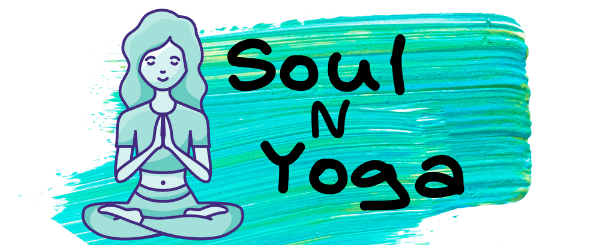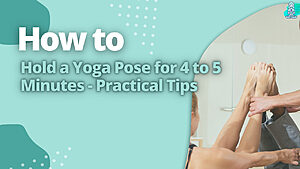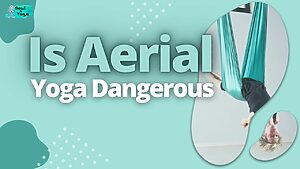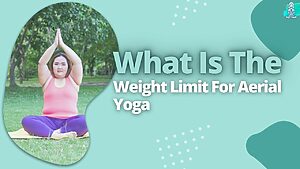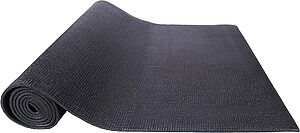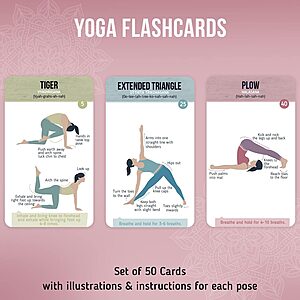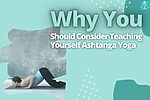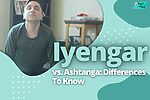Yoga is a popular workout routine, but there are so many different types, and it can be hard to know which one is right for you.
Hatha and Ashtanga yoga is the most popular types, but what’s the difference?
Key Takeaways
- Hatha and Ashtanga yoga are two different styles of yoga.
- Hatha yoga is a more gentle form, while Ashtanga yoga is a more vigorous form.
- Both styles of yoga can be beneficial for your health, but each has different benefits.
- If you are new to yoga, starting with Hatha yoga is recommended before moving on to Ashtanga yoga.
- If you want a workout, Ashtanga yoga may be a better choice. Still, if you are looking to relax and destress, Hatha yoga may be a better choice.
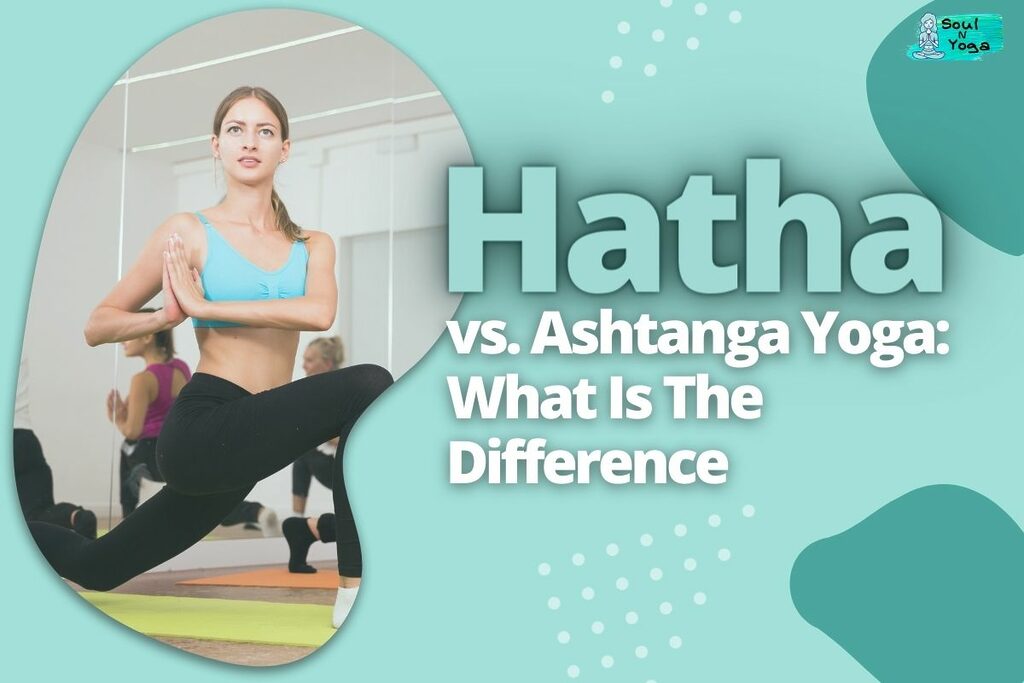
What’s The Difference Between Hatha And Ashtanga Yoga
Hatha and Ashtanga yoga are two of the most popular styles of yoga practiced today. Even while they can initially appear to be identical, these two forms of yoga have a lot in common.
For one, Hatha yoga is a much slower-paced practice than Ashtanga yoga. In Hatha yoga, each pose is held for a longer period, which allows for a deeper stretch. This makes Hatha an ideal practice for beginners who are new to yoga.
On the other hand, Ashtanga yoga is a more vigorous style. The poses are linked together in a flowing sequence, each held for only a few breaths. This makes Ashtanga an ideal practice for those looking to build strength and stamina.
Another key difference between Hatha and Ashtanga yoga is the focus on the breath. Hatha yoga often uses the breath to help control the body during each pose. In Ashtanga yoga, however, the breath is used to create a fluid movement from one pose to the next.
So, what’s the bottom line? Both Hatha and Ashtanga yoga offer incredible benefits for the mind and body.
Hatha Yoga Is A More Gentle Form Of Yoga, While Ashtanga Yoga Is A More Intense Form
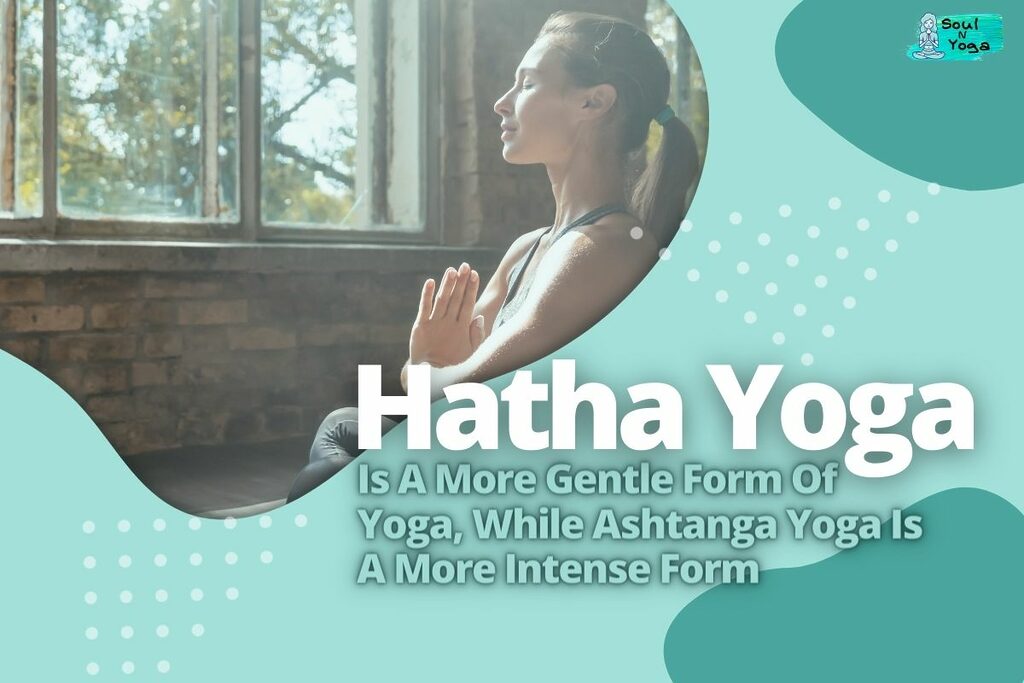
A common misconception is that Hatha Yoga and Ashtanga Yoga are the same. However, this is not true. They’re very different from each other.
- Hatha Yoga focuses on slow, deliberate movements and uses breath control to focus the mind.
- Ashtanga Yoga focuses on quick, flowing movements. It uses the breath as an extension of these movements to energize your body and mind.
Hatha Yoga Focuses On Slow, Deliberate Movements, While Ashtanga Yoga Focuses On Quick, Flowing Movements
Hatha yoga consists of slow, deliberate movements that focus on the body. The postures (asanas) are held for a longer period and are often done in combination with specific breathing patterns.
Ashtanga is a faster form of yoga focusing more on the mind than the body.
The poses flow into one another as you move from one posture to another without pausing—and you’ll probably hold each pose for only a few breaths before moving on to the next one.
This keeps your practice moving quickly so you can get the maximum benefit from each movement while minimizing fatigue or soreness (if you’re new to yoga).
Hatha Yoga Is Good For Beginners, While Ashtanga Yoga Is Better Suited For Advanced Yogis
Hatha Yoga is a great choice for beginners. It’s more gentle and relaxing than Ashtanga, which can be more intense and challenging.
Hatha also involves less strenuous, free-standing postures common in Ashtanga, so it’s a great option for those who want to start their practice with a foundation of simple poses before moving on to the more advanced stuff.
Hatha is like a gateway drug for yoga: it gets you accustomed to being on your mat every day, learning about what works for your body, how to listen to it, and how to build strength and flexibility over time.
Both Forms Of Yoga Can Be Beneficial For Your Health
While both forms of yoga can benefit your health, they offer different benefits. Hatha yoga may help you to relax and focus your mind. In contrast, ashtanga yoga can help you to build strength and flexibility.
While it is true that both forms of yoga can be beneficial for your health, they offer different benefits.
Hatha yoga may help you to relax and focus your mind. In contrast, ashtanga yoga can help you to build strength and flexibility.
Hatha Yoga Can Help You To Relax And Focus Your Mind, While Ashtanga Yoga Can Help You To Build Strength And Flexibility
If you’re new to yoga, Hatha is the way to go. It’s slower and easier to follow, so you’ll be able to focus on your breathing and the movement of each body part.
Hatha also has gentler variations on the body, so if you have an injury or health condition, it may be safer for you than Ashtanga.
As with any new activity, especially one as intense as yoga (yes, even though it looks like a bunch of people just sitting around), it’s good to start slow and work up as time goes on.
The slower pace of Hatha will help you find your balance in both mind and body while building strength over time.
What Is Ashtanga Yoga?
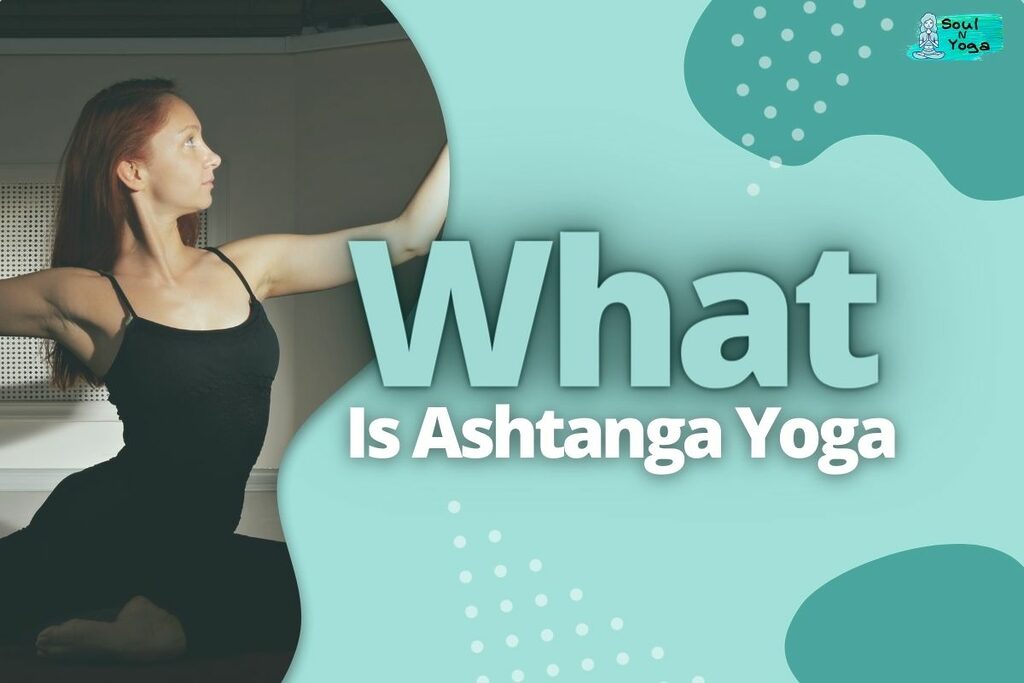
The primary focus of this system is linking breath with physical movement, which has been called the “breath-body connection” or “prana Vayu” (the life energy).
Many people are familiar with Ashtanga yoga because they’ve seen someone doing it—very likely at their local gym or studio.
It’s often called “power” yoga because of its emphasis on building strength and flexibility through intense stretching and poses like Chaturanga Dandasana (four-limbed staff) or Urdhva Mukha Svanasana (upward-facing dog).
Other common poses include Parsvakonasana (sitting side bend), Ardha Chandrasana – half moon pose), Uttanasana (standing forward fold), Adho Mukha Svanasana – downward facing dog pose), Tadasana – mountain pose) Pranayama (breathing practices) are also an important part of this system.
What Are The Main Differences Between Hatha And Ashtanga Yoga?
Both types of yoga are renowned for improving your health, and each has unique benefits.
In a nutshell, Hatha is a more gentle form of yoga that focuses on flexibility and balance—it’s great for beginners because it’s less intense than Ashtanga.
While they share some similarities (like breathing techniques), fundamentally, they’re different because they emphasize different elements: Hatha focuses on mental wellness, while Ashtanga emphasizes physical fitness.
If you want to learn more about how these two styles differ, read on.
Which Type Of Yoga Is Right For Me?
It doesn’t matter what kind of yoga you perform if you are just starting out. All major styles have their benefits and drawbacks—so it’s a matter of finding which is right for you.
You might want to try a few different schools or types before deciding if any style suits your needs and interests best.
If that sounds like too much work, consider this: the best style of yoga for most people isn’t Hatha or Ashtanga at all; it’s whatever works for them.
Conclusion
If you’re looking for a more intense form of yoga that helps you build strength and flexibility, Ashtanga yoga might be the right choice. If you’re looking for something more gentle and relaxing, Hatha yoga may be better suited to your needs.
Both types of yoga benefit your health and well-being, so don’t worry too much about choosing one over the other.
If there is one thing we learned from this article. Both forms offer different benefits depending on the type of person they are looking to target.
Frequently Asked Questions
Which type of yoga is better for beginners?
Both forms of yoga are good for beginners, but Hatha is generally seen as more beginner-friendly. Ashtanga can be a bit more challenging and intense for those just starting, but it offers more benefits to those who stick with it.
Is one type of yoga better for weight loss than the other?
Both forms of yoga are beneficial for weight loss. Still, as with any exercise program, you need to ensure that you also eat a healthy diet and exercise regularly.
Which type of yoga is more strenuous?
Ashtanga is more strenuous than Hatha, but both effectively build strength and flexibility.
My name is Mugen Seki, and I’m a painter and yoga enthusiast who is passionate about bringing together art and exercise in ways that help people connect with their inner selves. When I’m not painting, I’m practicing yoga. And when I’m not doing either of those things, I’m usually thinking about them.
- How to Hold a Yoga Pose for 4 to 5 Minutes – Practical Tips
- A Guide to Finding the Perfect Yoga Mat for Carpet Floors
- Can You Add Yoga To Fitbit Luxe (Unlock the Power)
- Can You Add Yoga To Garmin Vivoactive (Yoga On The Go)
- Is Aerial Yoga Dangerous (The Scary Truth)
- What Is The Weight Limit For Aerial Yoga (Exploring The Possibilities)
